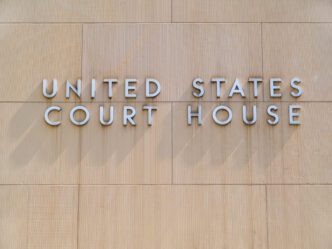Executive Summary
- The U.S. House of Representatives passed a bill 222-209 to fund the government through January, ending a record-long shutdown.
- Newly released emails from the Jeffrey Epstein investigation allege that President Donald Trump was aware of Epstein’s activities involving young women.
- The White House has dismissed the allegations as a politically motivated “smear” and stated the documents prove nothing.
- The swearing-in of a new Democratic congresswoman provided the final signature needed to force a future House vote on compelling the full release of all Epstein files.
The U.S. House of Representatives voted Wednesday to pass a temporary funding bill aimed at ending the longest government shutdown in American history. The legislative action occurred as new revelations from documents related to the late financier Jeffrey Epstein created further political turmoil for President Donald Trump’s administration.
The measure to reopen the government passed with a 222-209 vote. The bill, which found support from six Democrats and opposition from two Republicans, will fund federal agencies through the end of January. President Trump is expected to sign the legislation into law, officially ending the 42-day shutdown.
Before signing the bill, President Trump delivered prepared remarks attacking Democrats and repeated several false claims. He is scheduled to sign the measure following a private dinner with Wall Street executives.
Concurrent with the shutdown negotiations, the political focus intensified on President Trump’s association with Jeffrey Epstein. House Democrats on the oversight committee released a new batch of emails suggesting Trump was aware of Epstein’s conduct. In the released correspondence, Epstein allegedly told an associate that Trump “knew about the girls.”
The White House forcefully denied the implications of the documents. Press Secretary Karoline Leavitt stated the emails “prove absolutely nothing” and are part of a “fake narrative” intended to “smear” President Trump. The Republican majority on the oversight committee countered the release by accusing Democrats of “cherry picking” documents to generate headlines.
The push for greater transparency regarding the Epstein case was bolstered by the swearing-in of new Representative Adelita Grijalva (D-AZ). Her first act was to sign a discharge petition, providing the 218th and final signature required to force a House floor vote on the Epstein Files Transparency Act, which compels the full release of federal files from the investigation. House Speaker Mike Johnson confirmed the vote will be scheduled for the following week.
The spending bill itself was not without controversy. Speaker Johnson expressed anger over a provision inserted by Senate Republicans that would permit senators to sue the federal government regarding subpoenas for their phone records related to the investigation into efforts to overturn the 2020 election. Johnson stated the House would move to repeal that provision next week.
Wednesday’s developments in Washington resolved the immediate crisis of the government shutdown while escalating the political conflict over the investigation into Jeffrey Epstein and his associates. It is important to note that all individuals are presumed innocent until proven guilty in a court of law.






